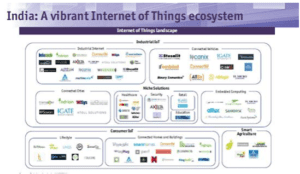As data science is regarded as the “new oil” for the technology industry, there is a surge in the demand for skilled professionals. Data Analytics is finding its application in nearly all aspects of life, from education to healthcare, social media, e-commerce, and fintech, to mention some. As a professional, data scientist plays a pivotal role in the business ecosystem and influence business decisions.
 Analytics, in general, has three important components – business context, technological intentions, and data science.
Analytics, in general, has three important components – business context, technological intentions, and data science.
Data science is a broad term that encompasses different expertise like research – both operations research and statistical research, machine learning algorithms, and deep learning.
No matter which aspect of data science are you planning to focus on, you need to understand the key skills that make up a good data analyst. Read on to learn about the skills you need to excel in a data analyst career.
MS Excel
One of the most widely used app for data visualization as well as financial, statistical, and mathematical calculations, excel is the basic tool one needs to master while looking for a career in data science. The pivot tables are one of the most popular tools used in data analytics. Charts are excellent tools for data visualization. Slicers and filters allow organizing data while the formula-based techniques are great for creating aggregate reports, while other features like Vlookup help process a large number of data bits into a well-organized structure, enabling easy comprehension.
Data Warehousing
In simple words, data warehousing involves the collection of data, organizing them, and storing them. Data analysts and projects managers are usually responsible for data warehousing, where they handle the safekeeping of the data, ensure that the privacy rules are strictly adhered to, and monitor them. Data analysts should be able to integrate the data collected from different sources, analyze and create analytical reports, and support decision-making.
Data Retrieval Skills – SQL
The Structured Query Language (SQL) is used to connect with the database. Whether updating a database or retrieving data from it, SQL is the standard language used by Relational Database Management Systems (RDMS). SQL skills are mandatory if you wish to have a career in Big Data. However, learning SQL is simple, even non-technical people can learn it. It has become a basic skill used in many organizations to create, maintain and modify database structures and storing the collected data.
Coding and Programming Skills
Data analysts should master coding and programming to practice their knowledge. You don’t need to be a hard-core programmer, but you need to know the basics and should be comfortable with coding and programming to excel in this role.
While the primary responsibility of a data analyst is to analyze the data and derive meaningful insights from the, understanding the concepts such as functions, loops, if-else, and programming logic would be an advantage while dealing with a large amount of data.
Artificial Intelligence (AI) and Machine Learning
AI and machine learning help enhance data analytics. When you prepare a machine learning algorithm and provide it with a model, it gives you an output based on the model provided. For instance, if you train a machine learning algorithm and provide it with a predictive model, it will provide you with predictive analysis based on the data feed.
There is no absolute definition of skills needed to excel as a data analyst. Most data analyst courses cover the basic skills needed to secure a data analyst job. There is a buzz about big data and its application. Almost all industries are espousing data analytics. As technology improves, there could be overlaps in the job role, or the job roles could encompass wider aspects of data science. The better skilled you are the more are the chances to excel in a data analytic job.



 What does all of it suggest?
What does all of it suggest? The demand for IoT professionals is rising constantly. You can capitalize on this opportunity by taking relevant courses and becoming a certified professional in this sector.
The demand for IoT professionals is rising constantly. You can capitalize on this opportunity by taking relevant courses and becoming a certified professional in this sector.
 With more students and professionals active online, the need for online tools and platforms is growing, and this has led to the demand for an intense expansion of their talent pool.
With more students and professionals active online, the need for online tools and platforms is growing, and this has led to the demand for an intense expansion of their talent pool. Data science is one of those areas not affected by COVID-19. In fact, the pandemic and the enforced stay-ins have resulted in an increased demand for data scientists. If you are a new graduate, take this opportunity to make the most out of the current market situation.
Data science is one of those areas not affected by COVID-19. In fact, the pandemic and the enforced stay-ins have resulted in an increased demand for data scientists. If you are a new graduate, take this opportunity to make the most out of the current market situation.